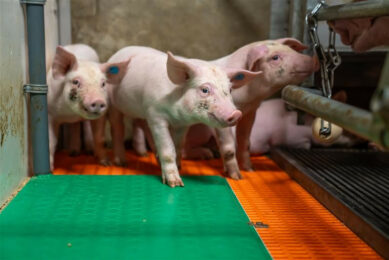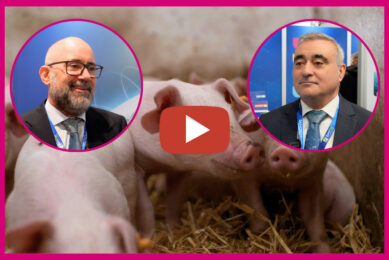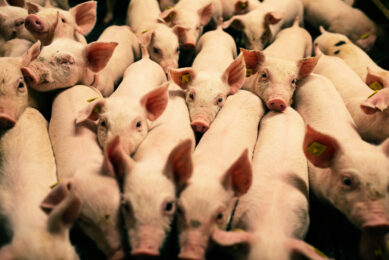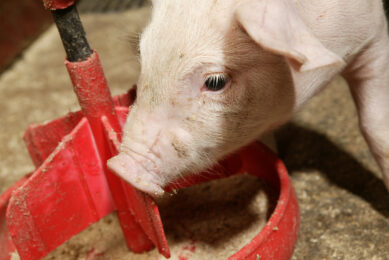Replacing ZnO requires a combined approach
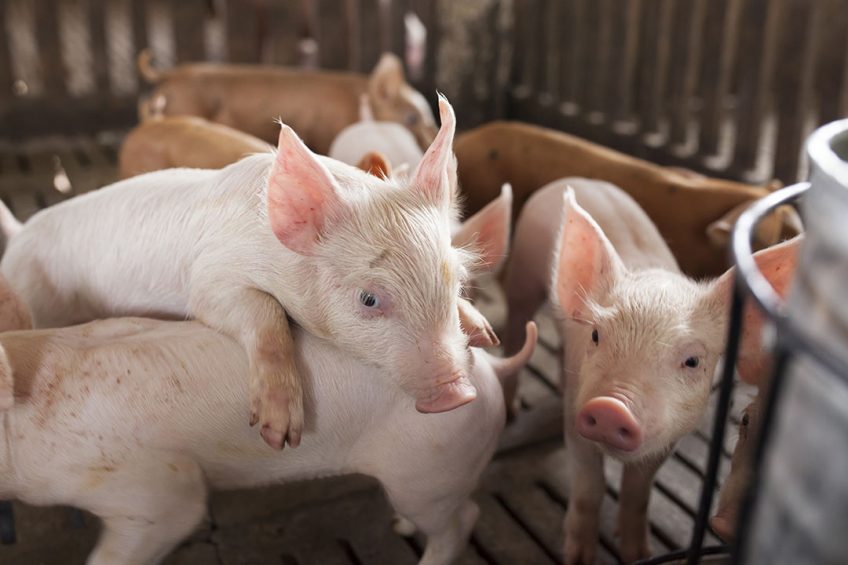
Time is running out to find solutions that could be used to replace therapeutic, high-level zinc oxide in weaned piglets. The EU will ban the use of medicinal levels of zinc oxide in 2022. It is becoming increasingly clear that zinc oxide cannot be replaced by a single product. So a combination of strategies is needed.
Zinc is an essential trace element which is part of several enzymes and it is involved in many metabolic processes. For instance, zinc is involved in protein synthesis and carbohydrate metabolism, but it is also important for skin and wound healing and has many biological interactions with hormones such as insulin and corticosteroids. Furthermore, zinc plays a role in water and cation balance and it’s required for the proper functioning of the immune system. Hence, it is important that daily zinc requirements are met in order to avoid zinc deficiencies leading to health problems and reduced animal performance.
Therapeutic high-level zinc oxide has been shown to be a very effective tool for preventing post-weaning diarrhoea in piglets. Therefore, the use of zinc oxide has increased drastically all over the world. More recently we became aware of its environmental impact and the EU decided to ban medicinal use of zinc. From June 2022 zinc as a feed additive can only be supplied in the feed in quantities that meet daily requirements. The allowed maximum level in the Commission Implementing Regulation (EU) 2016/1095 is currently set at 150 mg/kg of complete feed.
By 2022, all EU farmers need to be ready to grow their piglets without the using medicinal levels of zinc, while maintaining animal health and performance without increasing antibiotic use. Finding a solution to replace therapeutic high-level zinc oxide is not easy and there is no solution that will work on every farm. This makes it complicated since each farmer needs to find out which solution will work on his or her farm. Furthermore, the solution must be cost-effective, which seems very difficult given the very low cost of high-level zinc oxide.
Enterotoxigenic E. coli
Post-weaning diarrhoea is associated with E. coli infection, more specifically enterotoxigenic E. coli (ETEC). Therefore, finding an alternative for medicinal levels of zinc mainly targets the reduction of E. coli infection and a combination of different strategies to reduce the progression of ETEC infection is advised. Perhaps one of the best documented strategies involves reducing dietary crude protein in the diet for weaned piglets. Undigested protein will serve as a substrate for pathogenic bacteria, increasing the risk of ETEC infection. Reducing crude protein levels in pre-starter diets to a level of 16.5-17.5% is commonly used in the Netherlands as part of the strategy to replace medicinal levels of zinc oxide. Supplementing essential amino acids to maintain the optimal dietary amino acid profile is part of this strategy.
Reducing crude protein levels indirectly stimulates the gut health of piglets. Other important interventions in the strategy to prevent post-weaning diarrhoea include the use of easily digestible nutrients, good feed hygiene, clean drinking water and stimulation of feed intake when suckling and directly after weaning. In addition, there are many options for different feed additives on the market that might be part of the strategy. These feed additives usually target reducing the growth of ETEC or killing it, improving the morphology of the epithelium in the small intestine or stimulating the proper functioning of the immune system, including prevention of excessive inflammation. It seems that no single feed additive can achieve this, so a combination of different feed additives is required. However, as the solution seems to be farm-specific, it remains a real challenge to come up with a solution to prevent post-weaning diarrhoea.
Problems with post-weaning diarrhoea
Feed additives manufacturer Framelco has designed a farm-specific solution for a Belgian farm which is known to have problems with E. coli and post-weaning diarrhoea. The feed formulation was optimised and a crude protein level of 17% was used in both the control group and the treatment group. Piglets in the control group received therapeutic high-level zinc oxide during the first two weeks after weaning.
The piglets in the treatment group received, during the first two weeks after weaning, a specific blend of alpha-monoglycerides, hydrolysed lecithins and glycerides of butyric acid. In the following five weeks, the piglets in the control group did not receive any feed additives, whereas the piglets in the treatment group received a small amount of glycerides of butyric acid.
After seven weeks, the average final body weight was 0.5 kg higher in the piglets receiving the farm-specific solution (see Table 1). Average daily growth rate was increased by almost 3.4%. Moreover, feed intake was slightly higher in the treatment group, resulting in almost two points better feed conversion ratio (FCR) for the piglets in the treatment group. Unfortunately, diarrhoea problems were not solved in either of the groups. In both groups antibiotics had to be used, but the amount of medicinal treatments in the control group was clearly higher compared to the treatment group (47.1% versus 29.2%, respectively).
Applying the treatment
Although the application cost of the farm-specific solution was higher than the use of medicinal levels of zinc oxide, the performance of the piglets in the treatment group improved, as indicated by higher final body weights and improved FCR, resulting in more revenue and a positive return on investment (ROI).
Based on these results one can conclude that a solution has been found to replace medicinal levels of zinc without compromising animal performance or increasing the use of medication.



